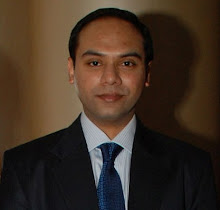Communists in West Bengal have now been replaced by socialists who pretend otherwise. Which is probably why West Bengal never saw the point of voting out the Left in favour of Mamata in the last 13 years. Many argue that the reason for the demise of the communists in WB is Nandigram which resulted from the hubris, that was the CPI(M) led by CM Buddhadeb Bhattacharya.
It is true that in its last avatar, the CPI(M) under Buddhadeb Bhattacharya made a sincere effort to invite liberal capitalism to the state. He met industrialists, beseeched business leaders, organized industrial gatherings, and got a few crumbs for all his efforts especially within the IT sector. His efforts ironically were largely thwarted by (i) the various trade/labour unions that communism had helped shape over the past 50 years and (ii) the Trinamool, which is an ally of the Congress, which is a party credited with opening the flood gates of global capitalism into India.
What then should we make of Mamata’s latest overtures to invite capital into West Bengal? Well, industrialists are not fooled. They know as well as we do, that actions speak louder than words and Mamata’s actions as Union Minister of Railways serves well to hint at her ideologies. Mamata’s ideology, if it can be called that, is this; to provide to the public of West Bengal, subsidized food, subsidized fuel, subsidized power, subsidized public transportation, subsidized education and whatever else it is possible to subsidize. For this, she will not hesitate to flog PSU’s, squeeze private sector businesses and brow beat the Govt at the centre for funds, which is heavily reliant of her support to keep the Govt running.
In 2007 the container rail freight industry was privatized under Lalu in the hope that it will support the over stretched Indian Railways (IR) and CONCOR, and increase rail traffic by weaning away cargo that would otherwise move by road. The business model was this: private players (CTO’s) would invest in rakes (trains) and containers to carry the goods for industries and shipping lines. The rakes carrying the containers would be hauled by IR on the IR rail network for which they would charge the CTO haulage. The CTO was free to charge a competitive and market determined tariff to its customers for carrying their cargo in its containers. The idea was indeed laudable, for it would benefit everyone, the end consumer would benefit from increased competition, supply chain lines would becomes faster, cheaper and more efficient than the roads, and the pressure on the roads would be eased.The Railways sold licenses to CTO’s to start their businesses for as much as Rs.50 crore per license. Another 500 crores or more were invested by private players in buying rakes and containers and the venture thus began.
Under Mamata however, the haulage charged to CTO’s was revised upwards by almost 100% over a period of 3 years. In addition to this, CTO’s are barred from operating at all of IR’s rail terminals, with their businesses restricted to only those terminals where the IR has the least amount of rail traffic. CTO’s are also restricted from carrying a large number of commodities such as coal and other minerals, despite the fact that IR cannot provide enough number of rakes to lift daily output of Coal India due to shortage of rakes.
Things came to such a pass that eventually some of these CTO’s were compelled to bring this matter to the notice of the competition commission for unfair practices on the part of IR. Litigation for the same is currently in progress.
What started out as a good initiative has now been turned into a loss making unsustainable enterprise. Those who invested in the venture lost money. The ever increasing logistics costs helps to drive up prices of commodities, at a time when we are besieged by burning inflation. All this was supposedly done to protect the lower and middle classes from higher rail passenger fares, by cross subsidizing it even below cost, by increased revenues from rail freight.
This serves as a lesson for those who preach cross subsidy. Mamata wants petrol and LPG subsidized, so the centre has to bail out PSU’s with oil bonds backed by taxpayer’s money. Mamata refuses to allow the state run power utility to increase tariff which would enable them to save Rs.250 crore monthly loss in revenue, consequently west bengal is faced with power shortage.
In view of such anti business actions, it is doubtful if business leaders will buy into Mamata’s business friendly rhetoric.
